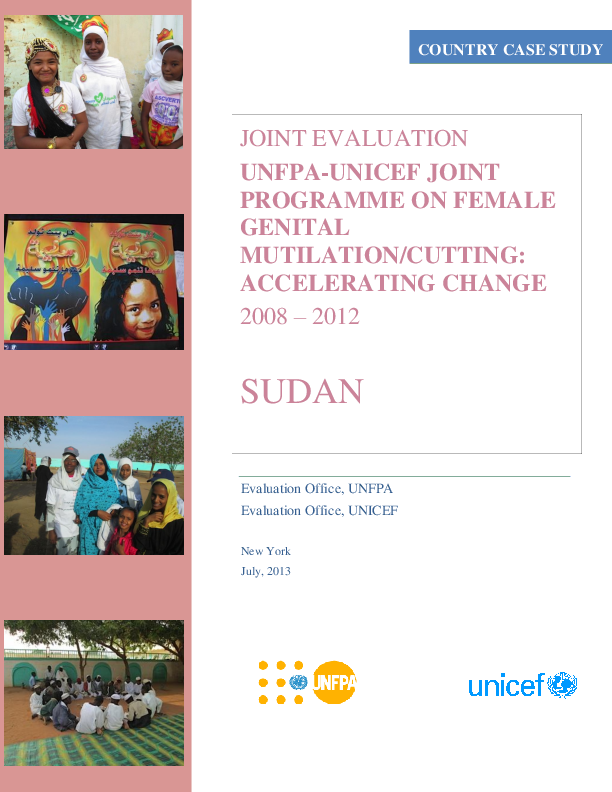The case studies presented below are independent assessments of the UNFPA-UNICEF joint programme support for the acceleration of the abandonment of the FGM/C in Kenya, Burkina Faso, Senegal and Sudan.
The joint programme has been relevant in view of national commitments and priorities, as well as in relation to various international commitments of the government of Sudan; its design has been appropriate in view of the specific needs of the Sudanese context(s). The joint programme has contributed to strengthening coordination among national and international actors working towards the abandonment of FGM/C in Sudan; to strengthening the legal and policy framework; and to enhancing awareness, commitment and ownership by key national actors in efforts to abandon all forms of FGM/C. The joint programme has been successful in fostering and strengthening local-level commitment to FGM/C abandonment. The coordination between UNFPA and UNICEF and the chosen approaches to managing the joint programme have contributed to the adequate use of available resources. Other factors that supported the implementation of the joint programme in Sudan include partnerships with religious leaders, commitment from the government of Sudan to ending FGM/C, and effective use of media. Challenges were posed by persistent reluctance to change in some communities, and by poverty and social displacement due to conflict. The cross-cutting issues of gender equality, human rights, cultural sensitivity, and equity focus were strongly reflected in the design and implementation of the joint programme. At the same time, existing progress reports provide only limited, if any, explicit reflection on these issues.
